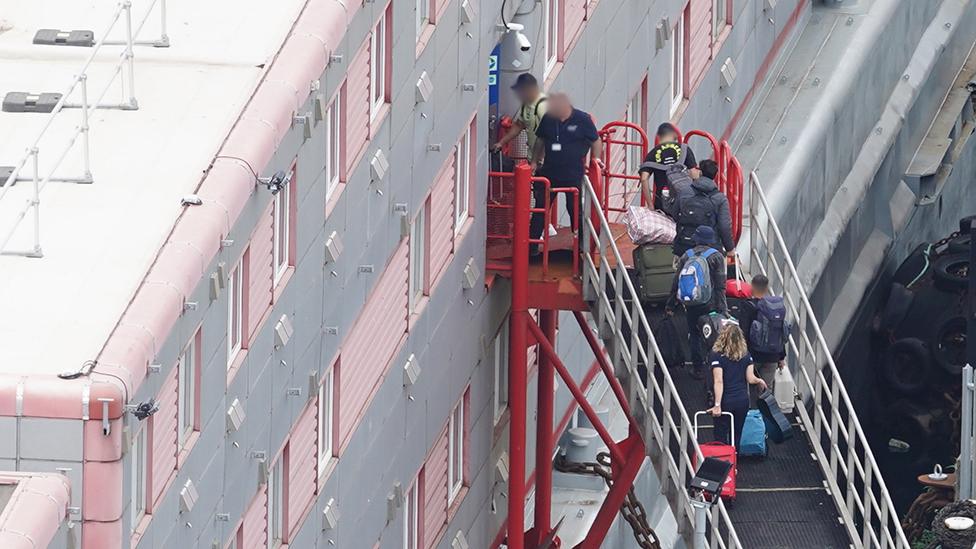Bibby Stockholm evacuation shows 'startling incompetence'
- Published
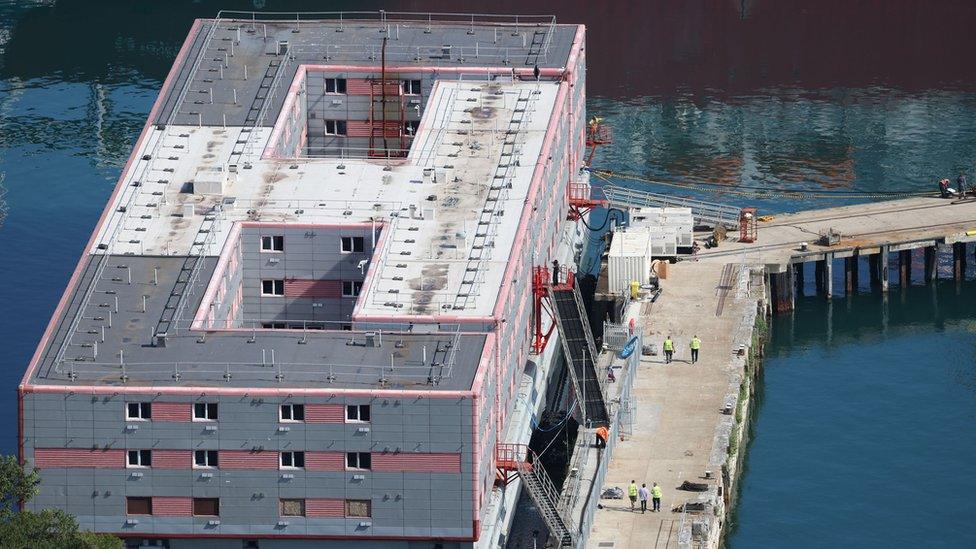
The barge is part of the government's plan to deter Channel crossings by migrants
The evacuation of the government's Bibby Stockholm barge amid fears of Legionella being found was the result of "startling incompetence", a senior Conservative has said.
All 39 migrants were removed after traces of Legionella bacteria were found in the on-board water system.
The bacteria can cause Legionnaires disease - a type of pneumonia.
Former Brexit Secretary David Davis said he believes the bacteria should have been identified sooner.
The MP told the BBC's Radio 4 Today programme: "It's really, really hard to understand how, at all layers, this could not be caught early.
"The primary thing that's been revealed has been the startling incompetence of the Home Office itself.
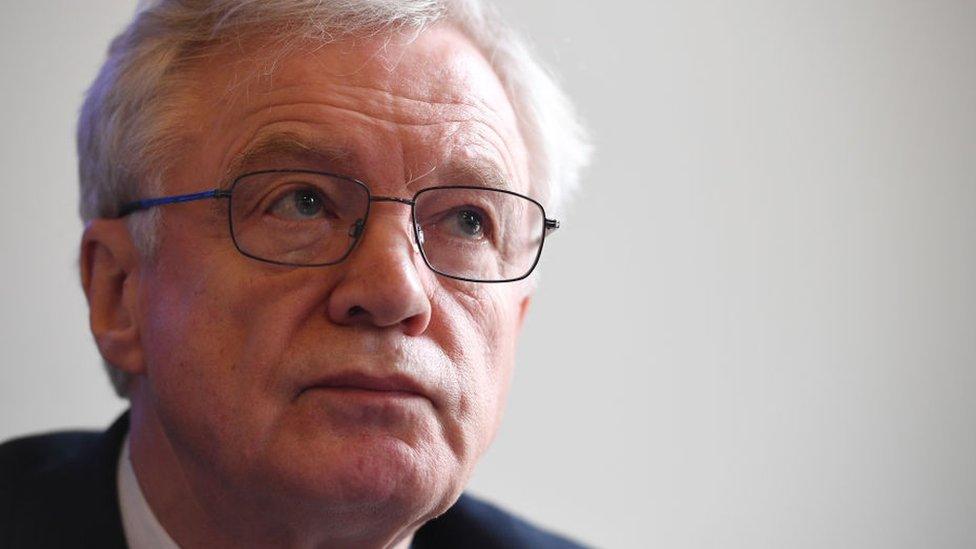
David Davis MP says the barge is not a solution to the problem of migrant Channel crossings
"Rather famously many years ago, John Reid, when he took over as Home Secretary, talked about it being not fit for purpose, and I'm afraid you're seeing that here."
The barge, in Dorset, is part of the government's plan to deter Channel crossings by migrants.
The Home Office said the migrants were taken off the vessel on Friday as a precaution.
Mr Davis, who served as Shadow Home Secretary, added: "Even working properly, the Bibby barge would only take effectively one day's arrivals.
"So it's not a solution to the problem and all of this is going to go on until the Home Office manages to process these arrivals more quickly."
'Sore throats'
One resident told the BBC the migrants had been transferred to a hotel and said a few of those who had been on board had sore throats, adding that he had also been having breathing problems.
Most people who contract Legionnaires disease make a full recovery but it can be deadly, with some 10% of cases proving fatal.
People with underlying health conditions, the over 50s and smokers are at risk of serious illness.
A Home Office source told the BBC on Friday that results showing "low levels" of Legionella in the water system on the Bibby Stockholm were received by a contractor on Monday.
It is understood the local council informed the Home Office on Wednesday evening but, at this stage, the results being discussed were still "low levels".
On Thursday further results "changed the picture".
There was a discussion with the UK Health Security Agency which advised that the six newly-arrived asylum seekers should be taken off the vessel.
Further testing has been done by Dorset Council's environmental health team and it is expected that migrants will be moved back only if and when the water supply is completely clear of contamination.

Follow BBC South on Facebook, external, Twitter, external, or Instagram, external. Send your story ideas to south.newsonline@bbc.co.uk, external.
Related topics
- Published12 August 2023
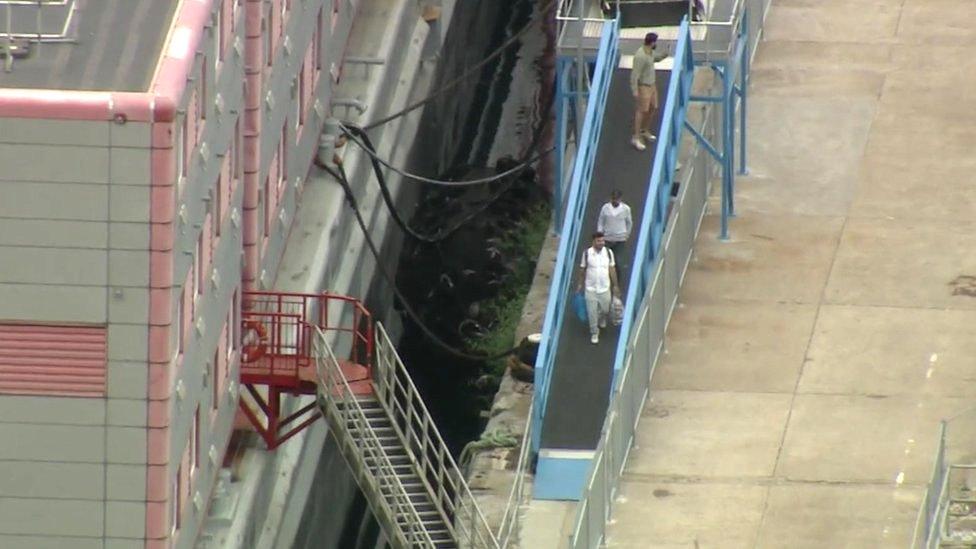
- Published7 August 2023
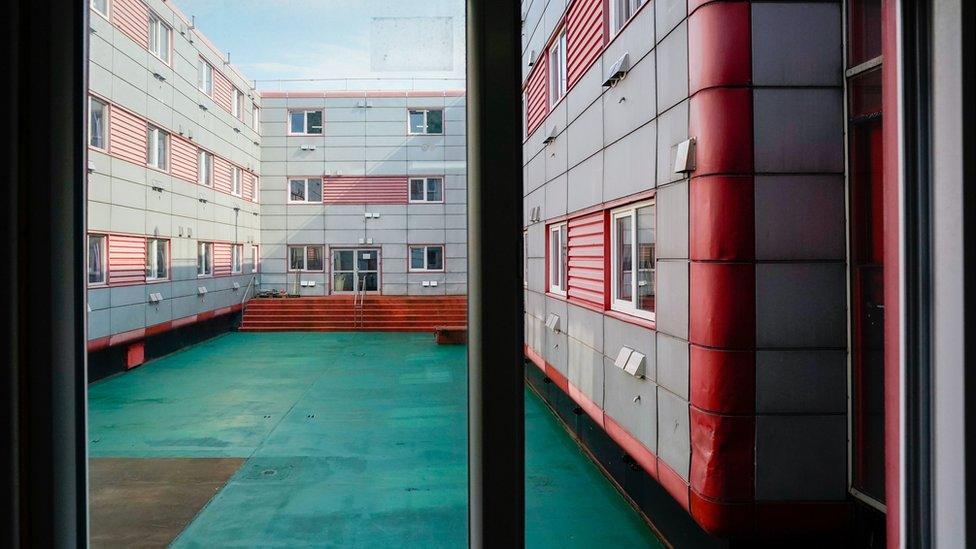
- Published8 August 2023
